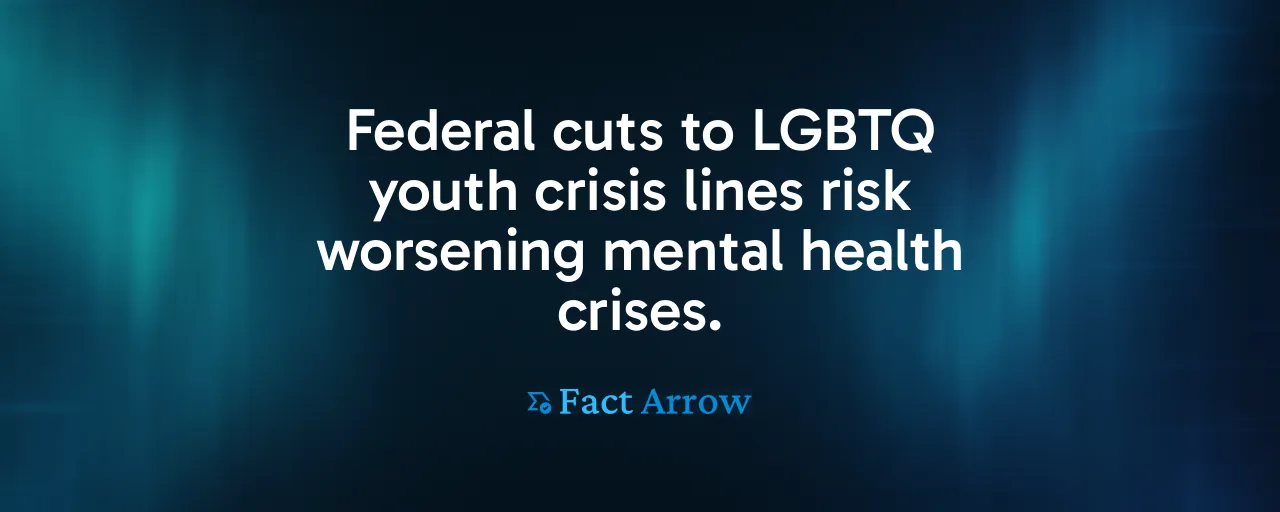A Federal Blow to Vulnerable Youth
The Trump administration's recent decision to end specialized support for LGBTQ youth through the 988 Suicide & Crisis Lifeline hit hard. Announced on June 18, 2025, the move eliminates a critical service that, since 2022, has connected over 1.3 million young people to counselors trained in their unique struggles. This policy shift deliberately sidelines a group already grappling with staggering mental health challenges. In response, California has doubled down on its commitment to these youth, but the federal retreat demands a broader reckoning.
For many, the news came out of nowhere. The 988 Lifeline, launched in 2022, was designed to be a universal safety net, with specialized options for high-risk groups like LGBTQ youth. The Trevor Project, a leading organization in youth suicide prevention, reported that 231,000 of its 500,000 crisis contacts in 2024 came through this line. Now, with federal funding cut off starting July 17, 2025, those callers face an uncertain future. The decision raises urgent questions about how we prioritize mental health equity.
The impact extends beyond abstract policy debates, directly affecting lives. Data paints a stark picture: 41% of LGBTQ youth considered suicide in 2023, with rates even higher for transgender and non-binary individuals. These numbers reflect real people facing family rejection, bullying, and discriminatory laws. Specialized crisis lines offer a safe space where callers know their identities won't be questioned. Losing that space risks pushing vulnerable youth further into isolation.
Why Tailored Care Matters
Research consistently shows that culturally sensitive mental health support saves lives. A 2024 Trevor Project survey found that LGBTQ youth with access to affirming environments, where their pronouns are respected or they have at least one supportive adult, are half as likely to attempt suicide. Crisis counselors trained in identity-specific issues, like those on the 988's LGBTQ option, build trust that encourages young people to open up. General counselors, while well-meaning, often lack the tools to address stressors like conversion therapy trauma or anti-LGBTQ legislation.
The evidence goes deeper. A longitudinal study on crisis line users found that tailored interventions lead to higher disclosure rates and lower suicide attempts among marginalized groups. This approach recognizes that not all crises look the same. For an LGBTQ teen facing rejection at home, a one-size-fits-all approach can feel like another door slammed shut. States with anti-bullying laws protecting sexual orientation and gender identity see an 18% lower suicide attempt rate, underscoring the power of targeted support.
California's response offers a blueprint. The state's $4.7 billion Master Plan for Kids' Mental Health, paired with partnerships like the Trevor Project, ensures that LGBTQ youth can still access specialized services. Programs like CalHOPE Connect provide culturally sensitive support, connecting callers to peer counselors who understand their experiences. These efforts show what's possible when policymakers prioritize inclusivity over political posturing.
A History of Progress Under Threat
The 988 Lifeline's specialized LGBTQ option didn't appear by accident. The 2020 National Suicide Hotline Act, signed into law under the first Trump administration, mandated trained staff for high-risk groups, explicitly including LGBTQ youth. By September 2022, the Trevor Project had rolled out the 'Press 3' option, which became a full 24/7 service in 2023. Federal funding, $29.7 million in 2023 and $33 million in 2024, made it possible. That foundation is now crumbling, with the administration claiming the funds are 'fully utilized' and better spent on a universal system.
This reversal is a step backward from a hard-won victory. The broader 988 system has handled 14.5 million contacts since its launch, a testament to its reach. Its success relies on meeting diverse needs. Advocates like the American Foundation for Suicide Prevention and the National Alliance on Mental Illness have called the cut 'devastating,' warning it could erode trust in the entire system. When a lifeline fails to reflect the realities of those it serves, it risks becoming irrelevant.
Solutions Rooted in Equity
Restoring federal funding for the LGBTQ-specific 988 option is a clear first step. Congressional Democrats are already drafting legislation to protect these services, and bipartisan voices, including some Republican critics like Representative Mike Lawler, have signaled support. Beyond funding, the federal government could mandate cultural competency training for all 988 counselors, ensuring that even a universal system meets diverse needs. States, too, have a role, with California, New York, and Colorado exploring state-funded crisis lines to fill the gap.
Long-term, the solution lies in embedding equity into public health. This means expanding access to mental health resources in schools, where many LGBTQ youth first seek help. It means challenging laws that stigmatize gender identity or sexual orientation, which fuel mental health crises. And it means amplifying organizations like the Trevor Project, which prove every day that affirming care works. These steps aim to build a system where every young person feels seen and valued.
A Call to Keep Fighting
The loss of the 988's LGBTQ option is a setback. California's swift response, alongside advocacy from groups like PFLAG and the Trevor Project, shows that progress can still move forward. The data is clear: when we invest in inclusive mental health care, we save lives. Every call to the Trevor Project, every connection through CalHOPE, is proof that these programs matter.
The fight is not over. Policymakers, advocates, and communities must rally to restore and expand these services. This moment tests our commitment to equity through action. If we believe every young person deserves a future, we can't let political winds dismantle the lifelines they depend on. The stakes are too high to look away.
For now, resources like the Trevor Project's hotline and California's CalHOPE remain open, ready to listen. They remind us that even in tough times, hope persists. Hope alone is not enough. It is up to all of us to demand a system that truly serves everyone, no exceptions.
